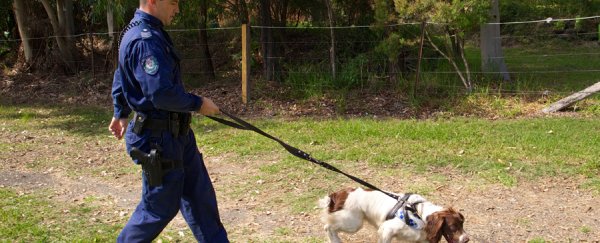It may sound morbid, but scientists can learn a lot from the slow decay of a dead body.
In Texas, the world's largest decomposition lab teaches researchers and police about the process of human decomposition, and helps forensic scientists to piece together the mysterious conditions that bodies are often found in - and you can see it in action below. But despite the benefits of these types of facilities, none currently exist in the Southern Hemisphere.
Now the University of Technology Sydney (UTS) Science has announced it will be establishing a facility early this year on the outskirts of Sydney, in collaboration with the police. The lab will be using donated cadavers to study human decomposition in the flesh, so to speak. They'll also be trying to establish a "scent" profile of a decomposing human body that they can provide to police dogs to assist with body detection.
This practice is known as taphonomy - the study of organic remains from the time of death to the time of discovery. And in today's turbulent world, it's more important then ever for researchers to improve search and recovery techniques, and understand what happens to the human body under unfortunate circumstances.
"Improvement in the training and application of these techniques can considerably enhance the success of victim recovery teams and lessen the impact on families and the community following mass disasters and other unnatural deaths," said Glenn Wightwic, UTS Deputy Vice-Chancellor in Research, in a press release.
In addition to police investigations, UTS's facility for taphonomic experimental research will also help researchers to better understand how to find hidden grave sites and study archaeological finds, including bones and artefacts, as well as understand how textiles and fibres degrade.
Of course, establishing this type of lab isn't without its challenges.
"The scientists and police involved in this research are confronted by death on a regular basis and understand the moral and ethical significance of working with human cadavers, just like doctors and medical students," said Shari Forbes, who will be leading the lab, in the release.
"This type of research is conducted with the utmost respect for the donor and compassion for the families involved, recognising the invaluable contribution they are making to society," she added.
In the lead up to the launch of the lab, Forbes and her team are already studying the decomposition of pig carcasses, which is similar to the process of human decomposition.
Find out more about the world-leading research happening at UTS:Science, and how you can be involved.
